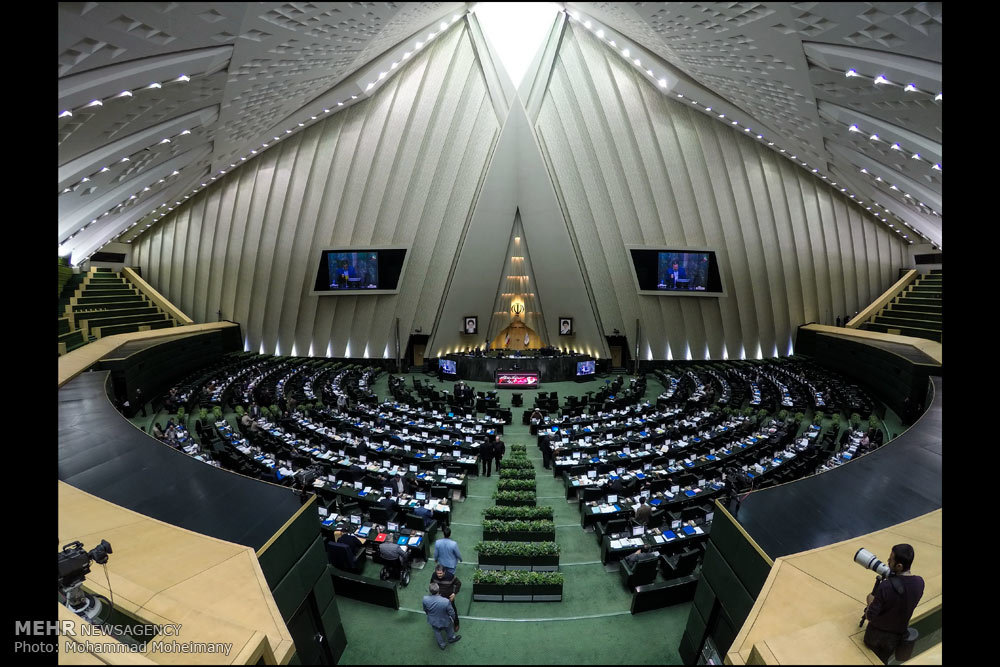Parliamentary body cancels death penalty for drug smugglers

TEHRAN – The Judicial Commission of Iran’s parliament has tabled a motion that, if passed, overturns death penalty for nearly 5,000 drug smugglers, a member of the body said on Saturday.
The parliament had already approved generalities of the act with the difference being that it now will act retrospectively.
“In this regard, the Judicial Commission has given its approval to retrospectively support the overturning of death penalty for drug smugglers already sentenced to death,” lawmaker Jalil Rahimi was quoted as saying.
Reportedly, more than 100 lawmakers helped draw up the preliminary legislation as a measure against growing execution reports in the country.
Iran is a neighbor to Afghanistan, a leading producer and supplier of the world’s drugs, and faces big challenges at home with a young population susceptible to a variety of cheap and abundant addictive drugs.
The country is also located on the Balkan route which traverses Iran (often through Pakistan), Turkey, Greece and Bulgaria across South-East Europe to the Western European market.
The Balkan and northern routes are the main heroin trafficking corridors linking Afghanistan to the huge markets of the Russian Federation and Western Europe.
According to Executive Director of the United Nations Office on Drugs and Crime (UNODC) Yury Fedotov, Iran is directly or indirectly involved in almost 40 percent of all drug confiscations around the world.
Critics, however, say Iran’s use of death penalty in this regard has done little, if anything, to address the issue.
Iran is a neighbor to Afghanistan, a leading producer and supplier of the world’s drugs, and faces big challenges at home with a young population susceptible to a variety of cheap and abundant addictive drugs.
Under the country’s anti-drug regulations, those engaged in smuggling and selling different types of drugs in amounts more than five kilograms are sentenced to death.
Iran has hinted that it wants to end drug-related executions.
Last October Iran’s Human Rights Council secretary Mohammad Javad Larijani, in what seemed to be a setback from a tougher stance taken previously, said Tehran may reconsider capital punishment for drug smugglers by limiting it to drug lords.
“Capital punishment should be limited to drug lords. This will cut the number of executions (in Iran) immediately,” he was quoted as having said in an interview with O Estadao, a daily published in Sao Paulo, Brazil.
Drug-related offences account for 93 percent of executions in Iran though all in compliance in law, according Larijani.
The human rights issue is increasingly turning into a sticking point between Iran and European countries after a successful accord between Tehran and six world powers, from among them three European.
While the official line in Iran has been leaning towards capital punishment over the past years, the EU lends support to what it calls “reduction efforts.”
In a 2016 document titled “An EU strategy for relations with Iran after the nuclear deal,” the union has voiced concerns over the issue.
“The EU has a long standing policy of opposing capital punishment,” read part of the document.
“The response from the EU has been to concentrate on harm reduction and other drug demand reduction efforts and avoid drug supply cooperation where the death penalty is part of the Iranian approach to reduce the drug trade,” read another part of the blueprint.
Responding to the report, Iranian Foreign Ministry Bahram Qassemi called on the European side to be “more realistic and forward-looking”.
Ever since, the two sides have met twice on the issue of human rights in a bid to reach a common ground.
During the recent 34th session of the Human Rights Council in Geneva, Asma Jahangir, the UN special rapporteur for human rights in Iran, presented her 40-page report on details of human ?rights violations in Iran.
In the report, Jahangir expressed concerns about no improvements in the human rights situation in Iran, voicing concerns over juvenile executions, accusations described by Iran as “unfair and politically motivated.”
AK/PA
Leave a Comment